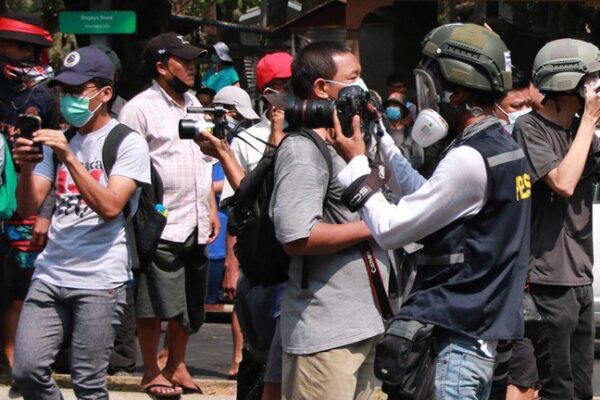
APEC 2023: Xi heads for US in closely-watched summit with Biden
Even as the world watches keenly as China’s President Xi Jinping meets his American counterpart Joe Biden on Wednesday, expectations of what could transpire in a climate of fraught bilateral relations marred by a tech war and regional tensions are modest. Xi is heading to San Francisco where he is due to meet Biden on the sidelines of the Asia-Pacific Economic Cooperation summit, the first time in a year since the two met in Bali, Indonesia. Some experts, while not anticipating a change in the trajectory of the U.S.-China relationship, are hopeful that the talks will deliver some results such as the formal resumption of military-to-military relations. Diplomatic and commercial dialogues between the two have resumed after the downing of the Chinese balloon earlier this year, pointed out Zhang Baohui, director of the Centre for Asian Pacific Studies at Lingnan University. “The two sides have even begun strategic dialogues on nuclear and maritime issues. However, the U.S. wants to reopen military to military dialogues to prevent inadvertent incidents. This meeting between the top leaders should remove the hurdle for military-to-military exchanges. “If so, this should be a significant development as the world is very concerned by the prospect of military conflicts between the two countries in sensitive areas like the Taiwan Strait and the South China Sea,” Zhang said. To be sure, the White House National Security Advisor Jake Sullivan told reporters on Monday that both sides will discuss strengthening communications and managing competition responsibly so that the U.S.-China relationship “does not veer into conflict” during the summit. “The way we achieve that is through intense diplomacy,” said Sullivan. He added that there are areas where “interests overlap,” such as efforts to effectively manage competition that could be done by reestablishing military-to-military communications. Incremental outcomes If there were any outcomes to come from the Xi-Biden summit, Ian Chong, a political scientist from the National University of Singapore believes they would be “incremental, but nonetheless important” to maintain the momentum of expanding dialogue. “Such effects will not be seen immediately after the meeting. Rather, they may unfold as more areas come under discussion in the following months to inject more predictability into the U.S.-PRC relationship to avoid unintended escalation, even as competition continues,” Chong said, referring to China’s formal name, the People’s Republic of China. “Xi probably seeks to press the PRC’s case on Taiwan and the South China Sea, while probing the U.S. on trade and technology and seeking more predictably in the bilateral relationship,” he noted. “Biden will likely reiterate U.S. positions on Taiwan and the South China Sea, while seeking more stability in the bilateral relationship. They may try to gauge each other’s positions on the Israel-Hamas conflict, Russian aggression in Ukraine, climate, and AI.” U.S. President Joe Biden meets with Chinese President Xi Jinping on the sidelines of the G20 leaders’ summit in Bali, Indonesia, November 14, 2022. (Source: Reuters) Another area of contention that is expected to be discussed is semiconductors in light of the recent chip export ban by Biden, alongside the push for generative AI in both the U.S. and China, observed James Downes, head of the Politics and Public Administration Programme at Hong Kong Metropolitan University. “The key achievable issues or goals will likely relate to the ongoing tech war between both countries,” said Downes. “The Biden-Xi Summit will be much more successful if both sides focus on economic issues, as opposed to long-term and divisive geopolitical issues.” According to Lingnan University’s Zhang, Xi will no doubt pressure the U.S. to relax technology denial measures against China, but he believes the U.S. is unlikely to yield on this issue. “Technological competition constitutes a central place in the overall U.S. competition strategy,” he explained. Zhang believes that Xi will try to persuade Biden to return the relationship to cooperation, away from strategic competition, seeking a U.S. commitment that it does not support Taiwan’s quest for independence. Biden, in contrast, will seek to stabilize the competition to prevent “conflict” by pursuing more measures to build “guardrails” for its competition with China, like the resumption of military-to-military dialogues. “The US will assure Beijing that it will follow the One China principle. Nonetheless, deepening security cooperation between Washington and Taipei will continue to bother Beijing and lead to contentious relations with the US.” Seeking specific outcomes Meanwhile, Sullivan said the U.S. is looking for specific outcomes in the overlapped areas of interests from the summit, which include efforts to combat the illicit fentanyl trade and discussion between the two leaders on critical global issues such as Russia’s war against Ukraine, and the evolving crisis in the Middle East. Given China’s stance on the Middle East conflict, there may be a potential that the leaders may agree-at-large, in expressing the importance of peace in the region. China’s deputy permanent representative to the United Nations, Geng Shuang, said in New York on Monday that establishing peace in the region was an important task for Beijing. However, it could be challenging for Biden and Xi to release a joint agreement on criticizing Hamas as Beijing has traditionally shown a less sympathetic stance on Israel, when compared to that of the U.S. This difference in diplomatic approaches may complicate the leaders in reaching a more detailed consensus on the Israel-Hamas war. In fact, according to Xinhua News Agency, Geng expressed “shock and concern” over statements made by Israeli officials regarding nuclear weapons usage in Gaza Strip, labeling the Israeli remarks as “irresponsible and troubling.” While Geng condemned the idea of using nuclear weapons, largely aligning with the international community and the Non Proliferation Treaty principles, the senior diplomat did not specifically address or criticize the actions of Hamas, which have led to civilian casualties. Edited by Mike Firn and Taejun Kang.







